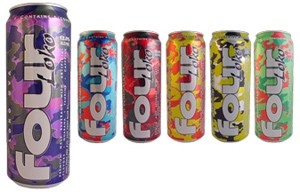Researchers question energy drink safety (again); Red Bull points to EU backing

The damning report about a sector valued at more than $5bn by drinks market analyst Canadean, has just been published online in Pediatrics and follows a recent Journal of the American Medical Association (JAMA) commentary which slammed energy drinks over caffeine levels that can push above 500mg per serving.
Co-author of the Pediatrics study, Dr Steven E. Lipshultz, the chairman of pediatrics at the University of Miami, said energy drinks were, “a set of products that are totally unregulated and have no therapeutic benefit”.
It is estimated up to 50 per cent of young Americans consume energy drinks, often mixing them with alcohol.
Like the JAMA commentary, Dr Lipshultz and his fellow researchers pointed to the fact caffeine levels were not regulated in energy drinks, nor were other stimulants such as taurine and guarana.
European backing
Responding, global energy drinks leader Red Bull pointed to European Union research that backed the safety of the products.
“The EU’s food safety authorities spent 10 years thoroughly examining energy drinks and concluded that the key ingredients [taurine and glucuronolactone] are of no concern," Red Bull said.
"This article just draws together material from the internet, and largely ignores the genuine, scientifically rigorous examination of energy drinks by reputable national authorities. The effects of caffeine are well-known, and as an 8.4-ounce can of Red Bull contains about the same amount of caffeine as a cup of coffee [80 mg], it should be treated accordingly."
The researchers noted that of 5448 US caffeine overdoses reported in 2007, 46 percent occurred in under-19s before concluding: “Long-term research should aim to understand the effects in at-risk populations. Toxicity surveillance should be improved, and regulations of energy-drink sales and consumption should be based on appropriate research.”
The study is available online here.
Source:
Pediatrics
Volume 127, Number 3, March 2011
‘Health Effects of Energy Drinks on Children, Adolescents, and Young Adults’
Authors: Sara M. Seifert, Judith L. Schaechter, Eugene R. Hershorin and Steven E. Lipshultz













